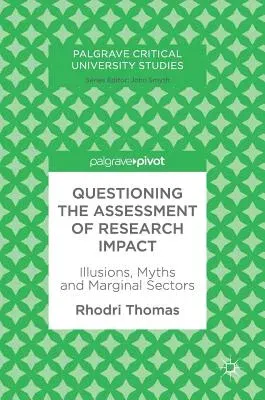Rhodri Thomas
(Author)Questioning the Assessment of Research Impact: Illusions, Myths and Marginal Sectors (2018)Hardcover - 2018, 29 August 2018

Qty
1
Turbo
Ships in 2 - 3 days
Only 2 left
Free Delivery
Cash on Delivery
15 Days
Free Returns
Secure Checkout

Part of Series
Palgrave Critical University Studies
Print Length
132 pages
Language
English
Publisher
Palgrave Pivot
Date Published
29 Aug 2018
ISBN-10
3319957228
ISBN-13
9783319957227
Description
Product Details
Author:
Book Edition:
2018
Book Format:
Hardcover
Country of Origin:
NL
Date Published:
29 August 2018
Dimensions:
21.01 x
14.81 x
0.97 cm
ISBN-10:
3319957228
ISBN-13:
9783319957227
Language:
English
Location:
Cham
Pages:
132
Publisher:
Weight:
331.12 gm